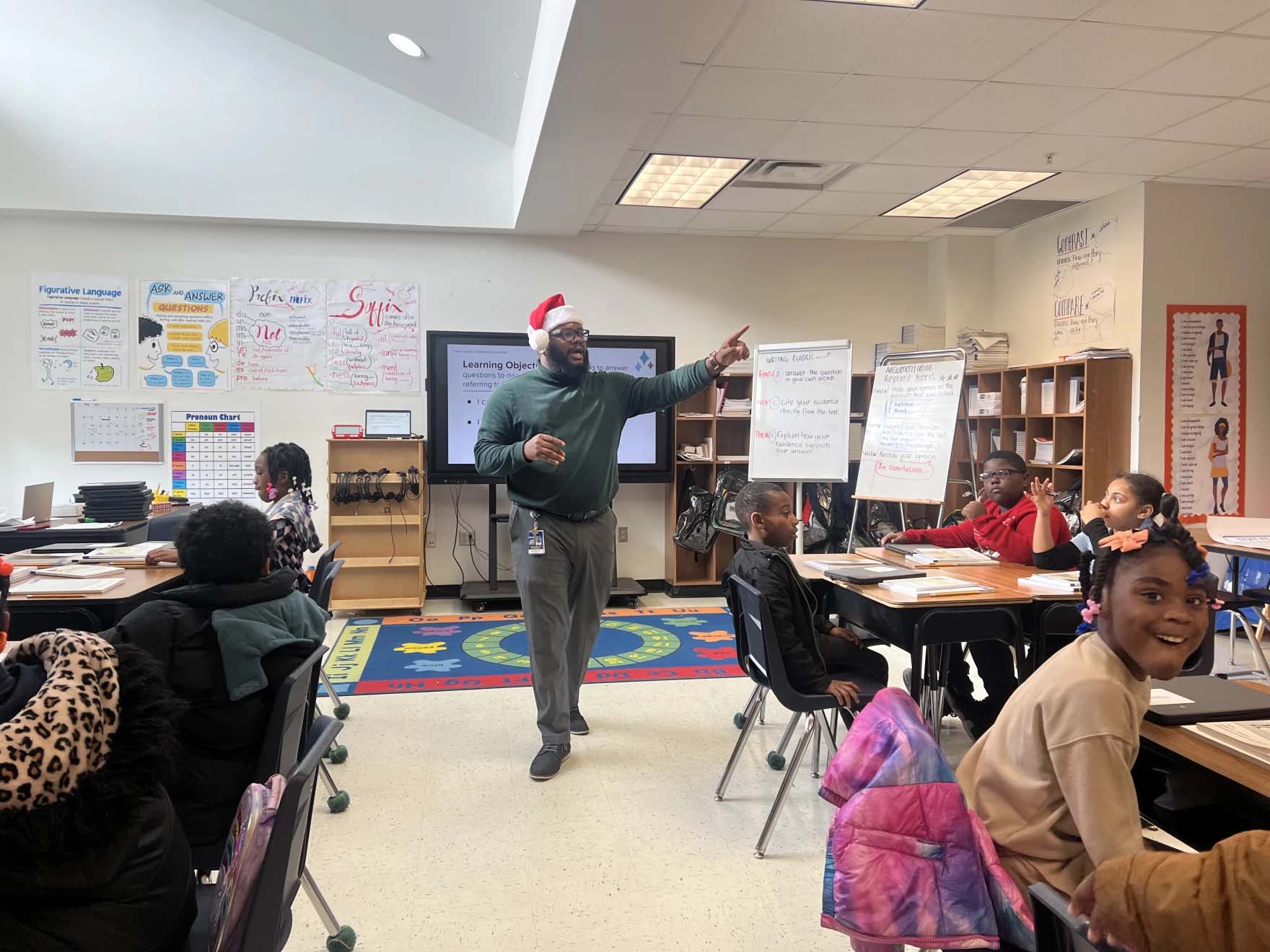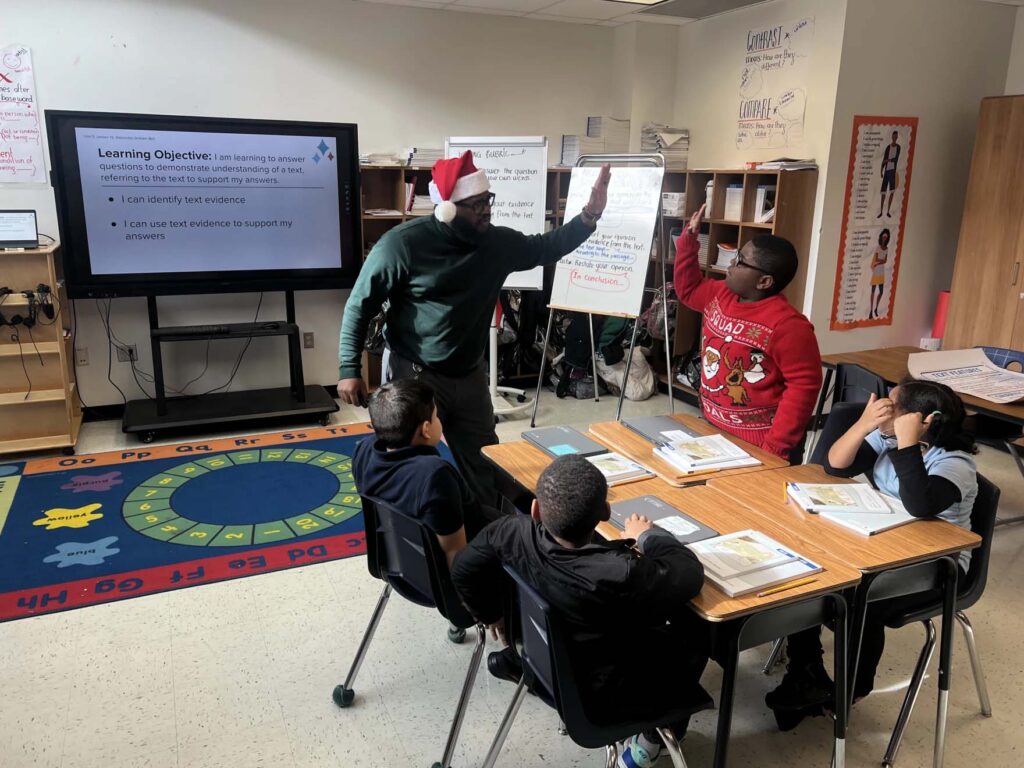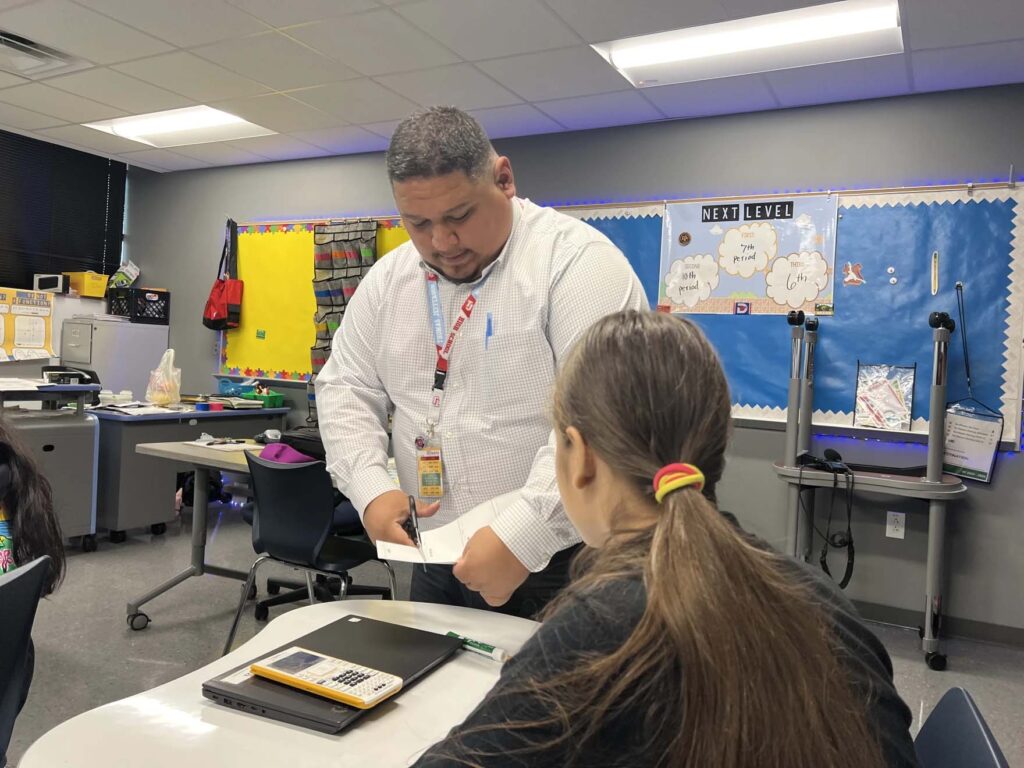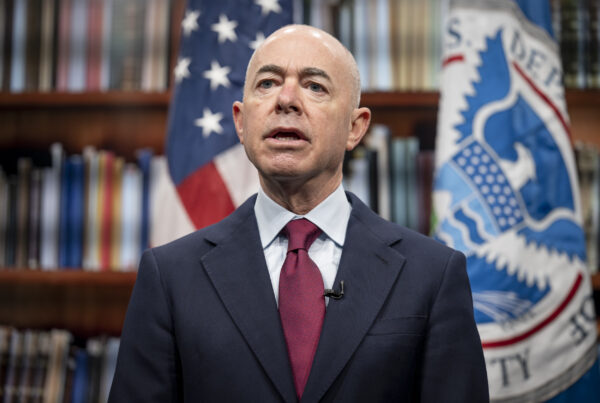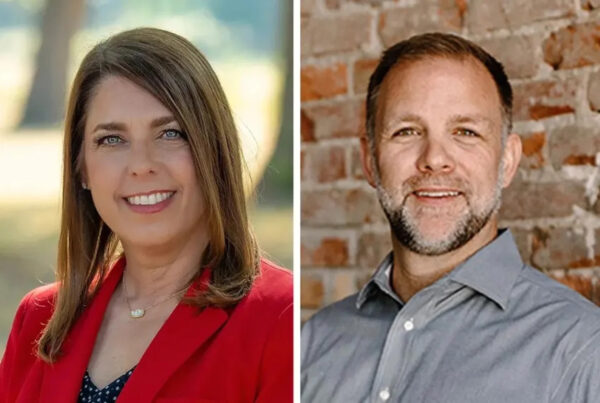From KERA News:
Every morning, Dejesus Adefuye asks his third-grade language arts students at Daniel Webster Elementary school in Dallas how they’re feeling and if they are ready to learn. The answers he receives aren’t always positive, so he’ll hand the student a purple stuffed monster and give the kids 15 minutes to get their thoughts and feelings off their chest.
Adefuye has some classroom practices that may be unusual to others. He acts as a father figure in the classroom and, outside the classroom, extends a helping hand to parents by doing at-home visits, getting the students together for a day at the park during the holidays, and asking families if they need more help beyond school.
He finds that it helps him connect with his students, making it easier for them to learn.
“My presence here is more than just, you know, a Black man teaching,” he said. “It means more to the students who can now see someone who looks like them. So now it goes from just teaching to now inspiring.”
Black male teachers like Adefuye make up less than 2% of all teachers nationwide, while 15% of the student population is Black. Dallas ISD has a student population that is about 90% either Black or Latino.
Numbers like these are hard to ignore — so, in 2020, Dallas ISD created a program to get more Black and Latino male teachers into its classrooms.
Steven Jackson, Dallas ISD’s director of recruitment, pitched the residency program to the racial equity department after comparing the district’s numbers to those nationwide. At the time, only about 950 of the district’s nearly 10,000 teachers were Black or Latino men. Since it began, the program has brought in more than 200 new teachers.
“We’ve had individuals who go through our program who used to be police officers, who come through all different walks of life, who have now found their passion and what their true calling is,” Jackson said. “And that’s to be an educator.”
The purpose of the residency program is to increase the number of male teachers locally through mentorship, skill development and certification testing. The district’s recruitment strategies — specifically targeting Historically Black Colleges and Universities, Hispanic Serving Institutions, and regions with high minority populations — have been instrumental in changing the idea of teaching as a female dominated field and challenging cultural stereotypes, Jackson said.
“The image of what you see on TV is not truly the image of what Black and Latino males are,” he said, “and for those students to be able to see them in the classroom and get that image of their professional, their educators, it changes the narrative for them.”
Jackson’s first career was in media production, but when he could no longer see longevity in that path, he went through a similar program 16 years ago called Teach for America to become a special education teacher.
“It’s always going to be tough when you go into a new situation,” he said. “Education is not an easy field. You’re there to make sure that the next generation is better than where we are. That’s your whole goal.”
When starting his new career he remembered the prominent male figures in his life — the four Black male teachers he had while growing up and attending a predominantly white, Catholic school. From a young age they instilled in him the importance of education, he said, making it easy for him to see himself in their shoes.
“They taught me how to be a man. I could go and talk to those teachers because I knew I could relate to them, and they could relate to what’s going on with me and in my life,” he said. “And it really just helped mold me to the man I am today.”
That ability to relate to students is one reason why Dejesus Adefuye entered the residency program after his career pivoted from working in technical support and health care.
As a primary school student in Nigeria, Adefuye said he was often disciplined for “behavior issues” and felt misunderstood until he finally had a male teacher — someone he could connect with.
Adefuye said he understands that working with kids today at such a young age means he could be their first representation of a good male role model.
“When a student doesn’t have structure, it is visible in my classroom because behavior problems will arise,” he said. “And if you cannot get over behavior problems, academics will basically not be possible. So, with the younger students, you’re able to help them grow. And, you know, some of them are struggling with identity.”
The two-year-long residency program places Black teachers in elementary schools and Latino teachers in high schools — that’s where the needs are greatest. Teachers go through observation hours, vigorous testing, and a full internship year before they can even enter a classroom by themselves.
Felipe Cruz finished his internship in 2022 and now teaches math to juniors at Thomas Jefferson High School.
“I saw the program they were doing with the bilingual kids,” he said. “I thought, this is where I’m supposed to be.”
After COVID-19 shut down his cleaning business, Cruz decided to go back to school and, with the help of a friend, joined the residency program.
“I think COVID was one of those big challenges for everybody. And we all try to find ways to reinvent ourselves,” he said. “Luckily, I was able to go back to school. So that was my way to, you know, change it up for myself and come into the classroom.”
Knowing he had to go into high school, Cruz worried that he wouldn’t be able to connect with older kids. Once he stepped foot onto a campus, he said he immediately saw the lack of male representation within Dallas ISD, which added to his motivation to finish the program.
“We got to hear like the stories especially of the guys that were in elementary [schools], you know, they were talking about … having those relationships with those students,” Cruz said. “They could see the impact of the male presence in the campuses.”
Although having a male teacher has no direct impact on a student’s academic performance, it can shape how they perceive authority from men and women, said researcher and former teacher Kevin McGrath.
“The only people who are disciplining them are women all the time,” he said. “That could be particularly damaging for them in the long term, where they might start to have a resentment towards women in positions of authority.”
Students seeing teachers that are like them has an impact on how they view masculinity, how others might treat them, who they feel they’re meant to be and what’s acceptable behavior for them as well, McGrath said.
And it’s not just gender diversity, he said.
“Kids associate with particular teachers in different ways,” he said. “And so, for that impact to be maximized by the education system, there needs to be diversity within teachers. Diversity not just of gender, but of ethnicity, of culture, language, backgrounds, all sorts of different characteristics.”
About 70% of Dallas ISD high school students are Latino. Thomas Jefferson High School, where Cruz teaches, has a newcomer program for students that have lived in the United States for three years or less. Some of his students are new to the country and still learning English, while some might be taking on the heavy burden of having to grow up fast to provide for their families and, in some cases, even pay their own rent.
He said education might not be a top priority. He takes it upon himself to talk to not only the kids but their parents as well about the importance of staying in school.
“Those stresses of trying to stay in the education process, they don’t see the value in it,” he said. “So, when you have somebody that is Latino, that understands the process, and I’m able to communicate that to them.
“It adds value for them.”
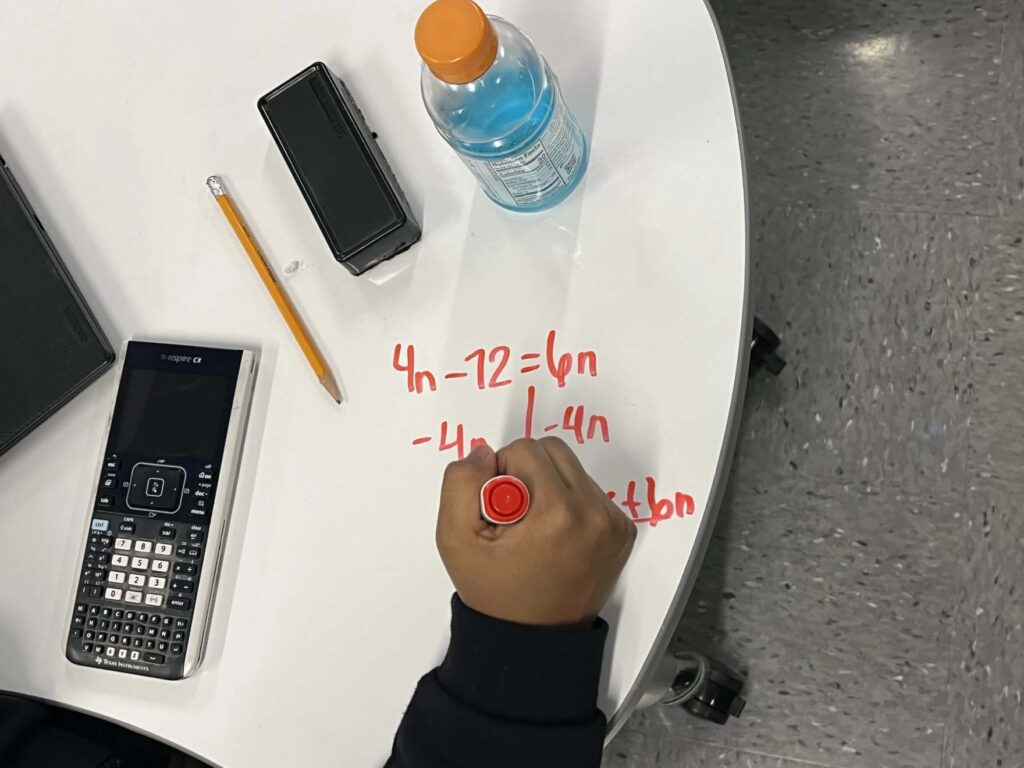
A student completes a math assignment at Thomas Jefferson High School. “This is where I’m supposed to be,” teacher Felipe Cruz said.
Zara Amaechi / KERA
Dallas ISD is recruiting for the residency’s 8th cohort. Both Cruz and elementary school teacher Dejesus Adefuye said they saw the need for men in the classroom and wanted to take on a bigger responsibility than just educating students.
“I believe that my job and the job of several male teachers here is about building a structure and creating a discipline and a balanced environment,” Adefuye said, “you know, something that will impact generations to come.”


